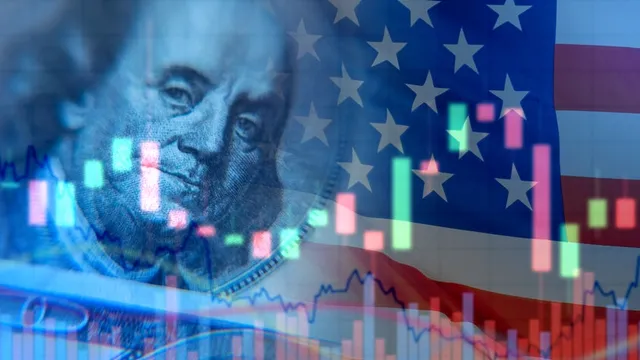
US banks gain $1 trillion from high interest rates
2024-09-29 06:00- U.S. banks have gained a $1 trillion windfall due to prolonged high interest rates set by the Federal Reserve.
- A survey indicates that most CFOs expect Kamala Harris to win the presidential election, despite a preference for Donald Trump for economic reasons.
- The disappearance of economist Zhu Hengpeng in China highlights concerns over free speech and dissent, coinciding with monetary policy adjustments by the People's Bank of China.
Express your sentiment!
Insights
In the past week, significant developments have unfolded in the financial and economic landscape. Major U.S. banks, including JPMorgan and Bank of America, have reported a staggering $1 trillion windfall attributed to the Federal Reserve's sustained high interest rates over the last two and a half years. This situation has allowed banks to earn substantial yields on deposits, although many have not shared these benefits with their customers, resulting in excess interest revenue. In the political arena, a recent survey conducted by CNBC revealed that a majority of chief financial officers anticipate Vice President Kamala Harris will win the upcoming presidential election. Interestingly, despite this prediction, many CFOs believe that Donald Trump would be more beneficial for the economy. This shift in expectations marks a notable change from previous sentiments expressed by financial leaders. Meanwhile, in China, the economic climate has taken a troubling turn with the disappearance of Zhu Hengpeng, a prominent economist who criticized President Xi Jinping's policies. His detention raises concerns about the state of free speech and dissent in China, particularly regarding economic discussions. Additionally, the People's Bank of China has implemented cuts to the reserve requirement ratio and the seven-day repo rate, indicating a response to economic pressures. These actions reflect ongoing efforts to stimulate the economy amid rising challenges, including the potential impact of Zhu's disappearance on public discourse.
Contexts
As the Federal Reserve continues its battle against inflation, the impact of high interest rates on U.S. banks and the economy is becoming increasingly evident. The concept of 'deposit beta' plays a crucial role in understanding how banks adjust their deposit rates in response to changes in the federal funds rate. With a beta of 0.5, for instance, a 50-basis point increase in the federal funds rate would lead to a 25 basis point rise in deposit interest rates. This sensitivity varies across different types of accounts, with internet banks often exhibiting higher betas due to their customers' tendency to seek out the best rates. Despite a period of flush deposits during the COVID-19 pandemic, banks are now facing a depletion of these excess funds as consumer spending rises and competition from credit unions and fintech firms intensifies. Economists are closely monitoring cumulative deposit betas to assess the ongoing effects of rising interest rates on banks' costs. As the Fed raises rates to combat inflation, the stakes are high, with potential repercussions for the broader economy. Federal Reserve Chairman Jerome Powell has emphasized the importance of achieving price stability without triggering a painful increase in unemployment. However, the Fed's aggressive rate hikes have raised concerns about a possible recession, with many economists predicting a coin toss chance of one occurring within the next year. The balance between controlling inflation and maintaining economic growth remains precarious. As the Fed prepares for its next meeting, the implications of its monetary policy decisions loom large. With inflation still a pressing issue, the central bank's actions will be closely scrutinized, as they navigate the complex landscape of interest rates, consumer behavior, and economic stability.